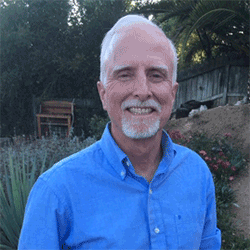Faculty-Led Semester Abroad
Fall 2023: Florence, Italy
Spend this fall living and learning in the thriving city of Florence! RCCD will offer a semester long study abroad program in Florence, Italy in fall 2023. Florence is a city in Central Italy and the capital city of the Tuscany region. Florence was a center of medieval European trade and finance and one of the wealthiest cities of that era. It is considered by many academics to have been the birthplace of the Renaissance, becoming a major artistic, cultural, commercial, political, economic and financial center. Seven hundred years of cultural and artistic blooming are tangible today in the 14th-century Cathedral of Santa Maria del Fiore, the Church of Santa Croce, the Palazzo Vecchio, the Uffizi gallery, and the Palazzo Pitti. The city's history is further evident in the artistic works of great masters such as Giotto, Brunelleschi, Botticelli and Michelangelo.
Travel Dates
-
-
- Wednesday, September 6 - Thursday, November 30, 2023
- Wednesday, September 6 - Thursday, November 30, 2023
-
Academics
-
-
- Six classes will be offered by RCCD faculty in Florence (3 in Chemistry and 3 in Communication Studies)
- Students will enroll in 12 credits (four (4) courses at three (3) credits each) taught by RCCD faculty
- A guest speaker exploring the history of Florence
- Optional Beginner Italian Language Course
- Academic support from dedicated staff
- Riverside Community College District will issue the credit for these courses
-
Program Fees
-
-
- Price reduced to:
$8065 per student, minus $500 (CEACAPA scholarship) for each applicant - Total New Program Fee
$7565 per student (paid to CEACAPA) + $1300 airline ticket fee (paid to RCCD) - Must be paid by May 17, 2023
- Price reduced to:
-
How to Enroll
If you are interested in the program and would like to know more, please fill out the program interest form to be invited to the next information session.
Program Interest Form
Florence Program Application
Meet Your Faculty & Courses Taught in Florence
Emily SpencerAssociate Professor of Chemistry
Riverside City College, MTSC 427
CHE-2A - Introductory Chemistry I (4 units) UC, CSU Prerequisite: MAT-52 - Lecture and Lab
Introduction to the nature of chemicals, their properties, chemical bonding, reactions, mixtures, environmental topics, and nuclear chemistry. Appropriate for students going into one of the allied health fields (nursing, dental hygiene etc.), for students advancing to general chemistry, and even for non-science majors. Italy is country with a rich culture of fine food, music, and art which is why the course will use the concepts of food chemistry, chemistry of art, and the chemistry of music as a platform for learning.
CHE-10 - Chemistry for Everyone (3 units) UC, CSU - Lecture Only
This is a survey course emphasizing historical and modern chemistry and chemical issues. With the chemical industry in Italy being the 3rd largest in Europe as well as petrochemicals and plastics being the main sectors, environmental impacts of this type of commerce are ripe for exploration. Processing of raw materials into finished products and the impact that has on the environment will be part of this discussion. This course is designed to provide a general overview of how chemistry applies and contributes to society. Topics include, but are not limited to, atoms and molecules, acids and bases, organic and biochemical compounds, genetics, and nuclear chemistry. Students will utilize the available cultural treasures of Florence to experience chemistry.
CHE-17 - Introduction to the Development of Modern Science (3 units) UC, CSU - Lecture Only
A survey of the rise of modern science in Western civilization from the Scientific Revolution of the 16th and 17th centuries through the biological and earth science revolutions of the 20th century. The historical forces that led to major scientific developments and the impact of science and science-based technology on society will be examined. Special emphasis will be placed on exploring the roll that Italian scientists such as Galileo Galilei (astronomer, physicist, and father of modern science), Evangelista Torricelli (physicist, mathematician, and inventor of the barometer), Marcello Malpighi (biologist, physician, founder of microscopic anatomy), and Giovanni Borelli (physiologist, mathematician, biomechanics) had in the evolution of scientific theory.


